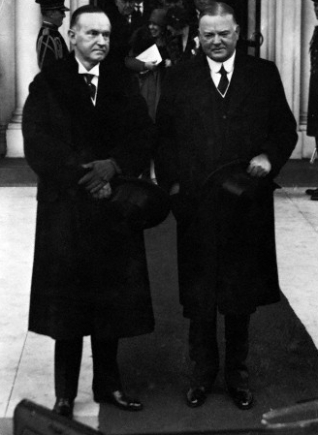Our system of limited powers enumerated in the Constitution has regularly proven to be a source of frustration to those who want to do more than the law allows. For them, it is an obstruction to progress, as they see it, by “negative rights,” preventing the government from doing all it can to make life better. These constraints are there by design to safeguard the rights of the people over their government, not government over its people.
Before Calvin Coolidge had even stepped off the public stage into retirement, pursuit of the ideal “good man in politics,” as Mason puts it (in “Harlan Fiske Stone: Pillar of Law,” p.267), was underway around him. Attitudes were shifting away from a faith in the people to govern themselves and back toward a confidence that government, armed with a greater efficiency and sharpened intelligence, could better plan and prepare for the nation’s future. President-elect Hoover, Associate Justice Stone and later Franklin D. Roosevelt would champion this trend. In fact, Robert H. Jackson, Roosevelt’s Attorney General and future Justice on the Supreme Court, would note Roosevelt’s attitude toward the constraints of the Constitution, writing,
“The President had a tendency to think in terms of right and wrong, instead of terms of legal and illegal. Because he thought that his motives were always good for the things that he wanted to do, he found difficulty in thinking that there could be legal limitations on them” (“That Man,” p.74).
These limitations of government were not sources of antagonism for Coolidge. The limits imposed by the Constitution are not sources of obstruction to those who respect law and the people. It was Coolidge who often spoke in praise of the wisdom and continued importance of these limits. On one such occasion in September 1924, he said,
“Ours, as you know, is a government of limited powers. The Constitution confers the authority for certain actions upon the President and the Congress, and explicitly prohibits them from taking other actions. This is done to protect the rights and liberties of the people. The Government is limited, only the people are absolute. Whenever the legislative or executive power undertakes to overstep the bounds of its limitations, any person who is injured may resort to the courts for protection and remedy. We do not submit the precious rights of the people to the hazard of a prejudiced and irresponsible political determination, but preserve and protect them by an independent and impartial judicial determination. We do not expose the rights of the weak to the danger of being overcome in the public forum by popular uproar, but protect them in the sanctity of the courtroom, where the still, small voice will not fail to be heard. Any attempt to change this method of procedure is an attempt to put the people again in jeopardy of the impositions and the tyrannies from which the first Continental Congress sought to deliver them. The only position that Americans can take is that they are against all despotism whether it emanate from a monarch, from a parliament, or from a mob.
“A significant circumstance of the first Congress, one which ought never to be overlooked, lies in the fact that it results from the voluntary effort on the part of the people to redress their own grievances and remedy their own wrongs. We pay too little attention to the reserve power of the people to take care of themselves. We are too solicitous for government intervention, on the theory, first, that the people themselves are helpless, and second, that the Government has superior capacity for action. Often times both of these conclusions are wrong” (“Foundations of the Republic,” p.122).
Coolidge, professionally pausing for the sake of photographers, stands beside the incoming President, Herbert Hoover, on Inauguration Day, March 4, 1929. Notice Grace over her husband’s shoulder as she enthusiastically greets folks on her way to join the men in the open car ride to the official ceremonies.
